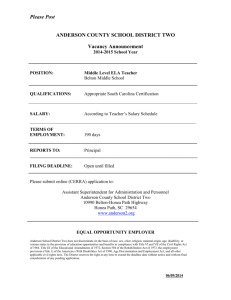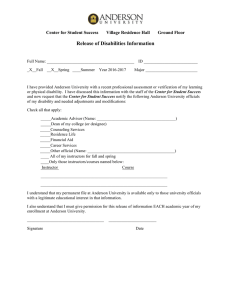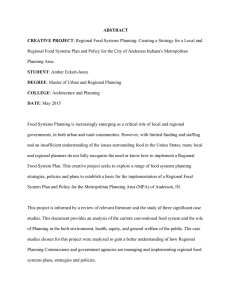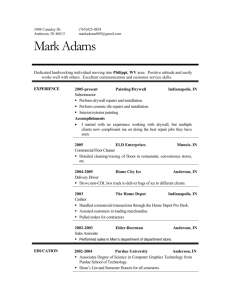African-American Homesteader
advertisement
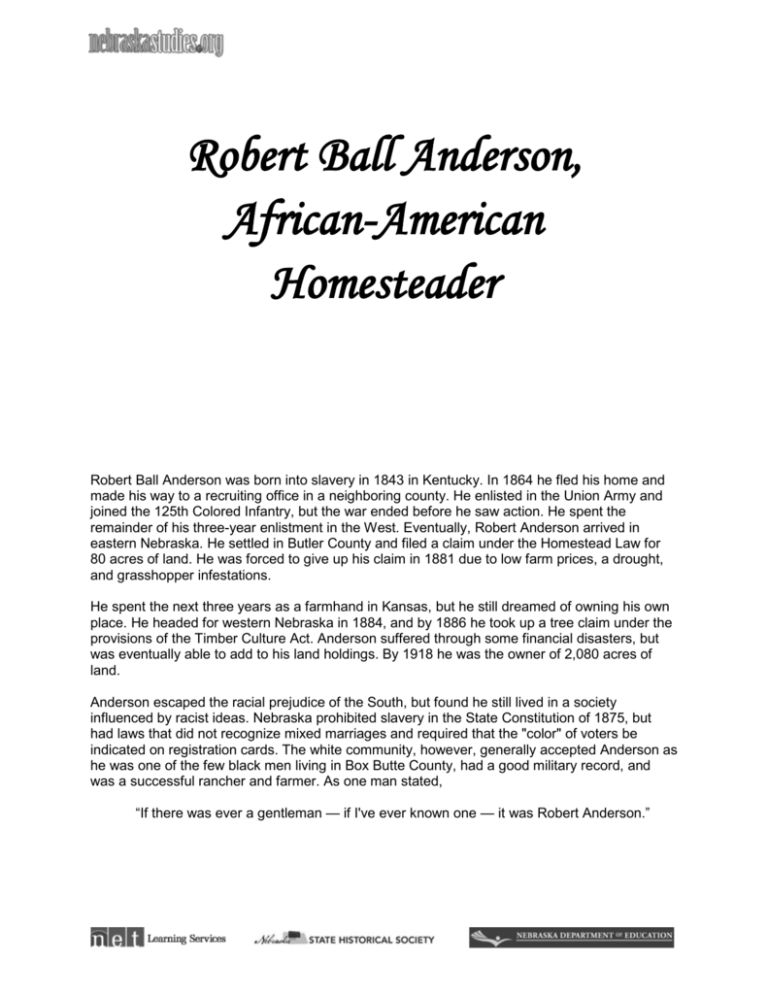
Robert Ball Anderson, African-American Homesteader Robert Ball Anderson was born into slavery in 1843 in Kentucky. In 1864 he fled his home and made his way to a recruiting office in a neighboring county. He enlisted in the Union Army and joined the 125th Colored Infantry, but the war ended before he saw action. He spent the remainder of his three-year enlistment in the West. Eventually, Robert Anderson arrived in eastern Nebraska. He settled in Butler County and filed a claim under the Homestead Law for 80 acres of land. He was forced to give up his claim in 1881 due to low farm prices, a drought, and grasshopper infestations. He spent the next three years as a farmhand in Kansas, but he still dreamed of owning his own place. He headed for western Nebraska in 1884, and by 1886 he took up a tree claim under the provisions of the Timber Culture Act. Anderson suffered through some financial disasters, but was eventually able to add to his land holdings. By 1918 he was the owner of 2,080 acres of land. Anderson escaped the racial prejudice of the South, but found he still lived in a society influenced by racist ideas. Nebraska prohibited slavery in the State Constitution of 1875, but had laws that did not recognize mixed marriages and required that the "color" of voters be indicated on registration cards. The white community, however, generally accepted Anderson as he was one of the few black men living in Box Butte County, had a good military record, and was a successful rancher and farmer. As one man stated, “If there was ever a gentleman — if I've ever known one — it was Robert Anderson.”
